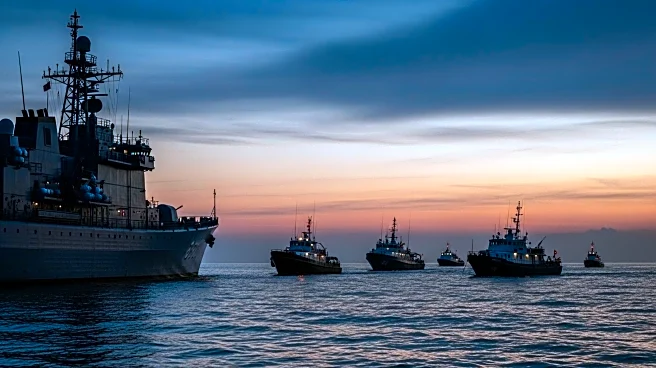What's Happening?
The Israeli military has intercepted a flotilla of civilian ships attempting to break the naval blockade on Gaza. The flotilla, consisting of over 45 boats, aimed to deliver food and aid to Gaza. Among the hundreds of people on board were activists, lawyers, and members of parliament, including Swedish environmental activist Greta Thunberg. The Israeli military boarded several boats, and organizers have lost contact with the flotilla. The situation remains tense as Israel views the flotilla as a provocation.
Why It's Important?
The interception of the flotilla highlights ongoing tensions between Israel and Gaza, drawing international attention to the humanitarian situation in the region. The involvement of high-profile activists and politicians underscores the global concern over the blockade and its impact on Gaza's population. The event may influence international diplomatic relations and prompt discussions on humanitarian aid and conflict resolution in the Middle East.
What's Next?
Israel has indicated that it may send the activists home rather than arrest them, depending on their response during the interception. The fate of the aid on board remains uncertain, with proposals to hand it over to the Catholic Church for distribution in Gaza. The situation could escalate if tensions rise, potentially affecting diplomatic relations and humanitarian efforts in the region.
Beyond the Headlines
The interception raises ethical and legal questions about the rights of activists and the responsibilities of nations in conflict zones. It highlights the challenges of delivering humanitarian aid in politically sensitive areas and the role of international organizations in mediating such conflicts.











